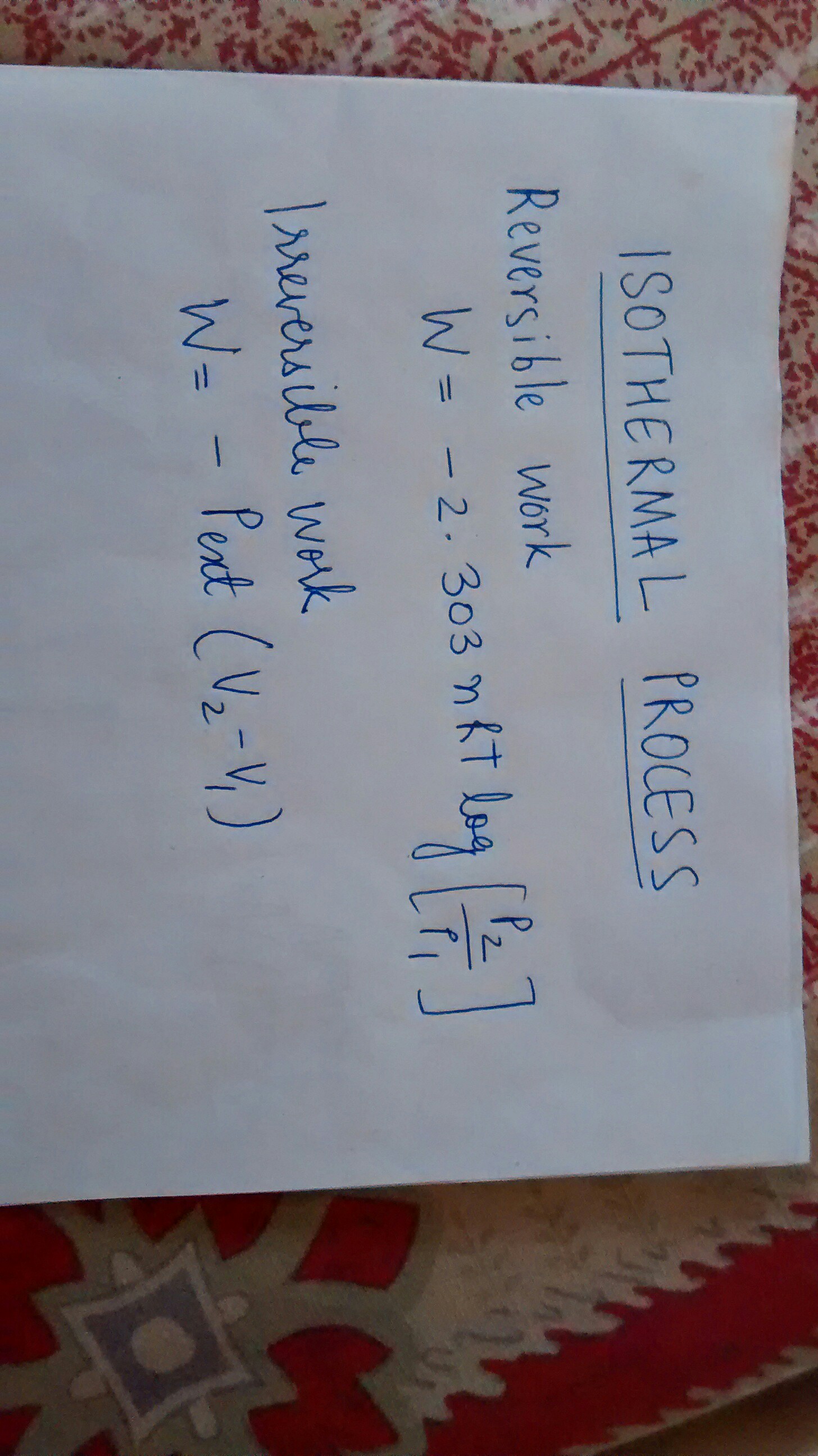My text book states the following:

(Edit:It should be p1/p2, sorry.)
My understanding of a reversible process is that it us a process that is executed so slowly that no energy would be dissipated at all and it is possible to bring it back to the original state again due to this. (The classic jar and piston example) An irreversible process is every other process.
I understood the derivation for work for reversible processes but for the irreversible process I am unable to relate to the formula. Take the example of the jar again. If we suddenly compress the gas, we are changing the external pressure, right? What would we substitute for p ext ? Also, how did this formula come and how does it accommodate the extra work we had to do that gets dissipated to get to the same state?
Please correct my understating if it Is wrong.
